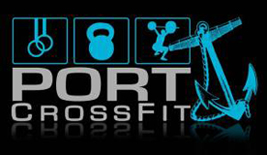Skeletal Muscle Increases Quality of Life
by Kyle Tiringer
BASED ON A NEW REVIEW BY UNIVERSITY OF BIRMINGHAM DOCTORAL RESEARCHER MICHAEL MCLEOD AND HIS COLLEAGUES IN THE JOURNAL BIOGERONTOLOGY, CALLED “LIVE STRONG AND PROSPER: THE IMPORTANCE OF SKELETAL MUSCLE STRENGTH FOR HEALTHY AGING.” (FULL ARTICLE HERE)

The paper quotes the term ’diseases of ageing’ (or sarcopenia) as a “syndrome characterized by progressive generalized loss of skeletal muscle mass and strength with the risk of adverse outcomes such as physical disability, poor quality of life and death.” Studies show that during ageing about 30% of an individual’s muscle mass is or will be lost by the age of 80 years old. Now this estimate is generalized solely from effects of daily posture maintenance, breathing and other autonomic activities and can increase exponentially through, poor eating habits, little to no exercises or any other poor lifestyle choices.
Now I know it may seem a little overkill to say, “okay, less muscle mass is going to decrease my quality of life and lead to death!” Yes, it may seem a little extreme to jump from “A” all the way to “D”. Ultimately, the ageing or breaking down of the body’s vital organs (cardiac & Lung function) changes the way our body metabolizes different nutrients. Overtime this can cause an increase in fat storage which can lead to insulin resistance in the body. Furthermore, this article goes on to explain a comprehensive study with over 8000 participants. It concluded, that in participants over 60 years of age, mortality rate from cancer-associated illnesses was twice as likely in individuals with low skeletal muscle strength compared to that of high skeletal muscle. The study also states “ In addition, irrespective of strength, low cardio-respiratory fitness is associated with ~ twice the incidence of all cause mortality (c). Adapted from (Ruiz et al. 2008)´
Now I’m always an advocate of some rest days here and there provided they are well deserved. The article references that something as small as 10 days of bed rest in adults can reduce lower leg strength and reduce aerobic capacity by 12%. Now let us extrapolate that into weeks, months or even years! You can see how that inactivity compounded over years can slowly lead to muscular atrophy, decreased strength, decrease mobility, decrease cardiac capacity, and slowly start affect your personal life choices. So how do we delay or avoid this sarcopenia or this life of disability. We need to make small changes in our lifestyle:
–Exercise Regularly and include resistance exercises such as weight training or machines – this will not only improve metabolic rate but improves balance and cognitive function. If we know we are going to lose 30% of our muscle why not get ready for the battle?! #CantStopMyGains!
–Take the stairs NOT the escalator, – chores around the yard, go for hikes, walks, bike rides or play sports – every bit counts! Having an active lifestyle will slowly change your body’s metabolism and work in succession with your exercising routine
–Proper daily protein intake – this study suggests that protein amount needed to stimulate protein synthesis in an older individual is 40% HIGHER than that of a younger individual. Depending on the person, We recommend for most of our clients about 1 gram of protein per LEAN pound of body mass.
In the past there has been studies that say exercise or muscle gain will dig yourself an early grave but I say the proof is in the pudding. I know I am not going to live forever, but I would think most people would agree, when I say “I’d like to live a healthy and disease free life for as long as I can. And if putting a little hard work in at an earlier age will help, than fine by me!” … It’s never too late to make better choices!
In Good Health,
Kyle Tiringer – Co-Owner and Perf. Coach
